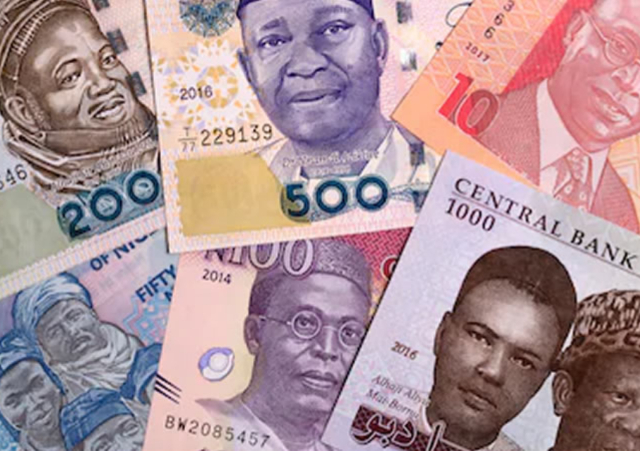- Ever since the Central Bank of Nigeria (CBN) banned the sale of dollars to bureau de changes, the value of the dollar against the naira has decreased by approximately 50% on the black market (BDCs).
- The Naira was trading at approximately N500/$1 on the black market when the CBN announced a ban on dollar sales to Bureau de Change (BDC) operators in July 2021. Currently, it is trading at an average of N755/$1.

Ever since the Central Bank of Nigeria (CBN) banned the sale of dollars to bureau de changes, the value of the dollar against the naira has decreased by approximately 50% on the black market (BDCs).
The Naira was trading at approximately N500/$1 on the black market when the CBN announced a ban on dollar sales to Bureau de Change (BDC) operators in July 2021. Currently, it is trading at an average of N755/$1.
In a similar vein, the official Investors and Exporters window (I&E) exchange rate between the naira and the US dollar has declined to N441.13/$1 from N410/$1 rec in dec. June 2021. Despite numerous interest rate increases and policies intended to increase the value of the Naira, the Naira has persisted in its downward trend in a number of markets.
The Central Bank of Nigeria (CBN) took an uncompromising stance to stop providing foreign exchange to Bureau de Change operators (BDCs) at the 137th Monetary Policy Meeting on July 27, 2021.
At the time, the exchange rate on the black market had crossed the N500/$1 ceiling, instigating a response from CBN Governor Godwin Emefiele, who blamed BDC operators for the exchange rate depreciating, accusing them of partaking in “illegal activities” when foreign exchange is supplied to them and they then sell it on the black market.
He also claimed BDC operators were fabricating false FX scarcity to make “abnormal” profits, endangering the Nigerian financial system.
He stated that the dollarization of the Nigerian economy, the subversion of the cashless policy, the joint ownership of multiple BDC by the same owners to obtain various FX, and regrettably, international organizations and embassy patronage of illegal FX dealers were all detrimental to the CBN’s goals for price stability.
After the CBN ban, the Association of Bureaux De Change Operators of Nigeria (ABCON) urged the Central Bank of Nigeria (CBN) to abandon the fixed exchange rate and allow the naira to float. Despite calls to float the Naira, the Central Bank of Nigeria (CBN) continues to intervene in the foreign exchange market via the Investors and Exporters window (I&E) at the expense of external reserves.
The Central Bank of Nigeria’s (CBN) foreign exchange strategy has resulted in a significant premium between official and parallel market rates.
Both the International Monetary fund (IMF) and the World Bank have advised Nigeria to free-float its currency to reflect market reality.
However, Governor of the Central Bank of Nigeria (CBN), Godwin Emefiele, defended the apex bank’s managed-float exchange rate system, stressing that it was adopted to address the peculiar challenges the country faces.
He said, “Nigeria’s situation is very peculiar, and that is why we have continued to engage the IMF and World Bank to show understanding of our local problems. And they are indeed showing understanding. “Yes, they want us to freely float the exchange rate, and you do know that this will have some impact on the exchange rate itself in the sense that when you allow that to happen, you will have some uncontrollable spiral in the country’s exchange rate,” he added.



















